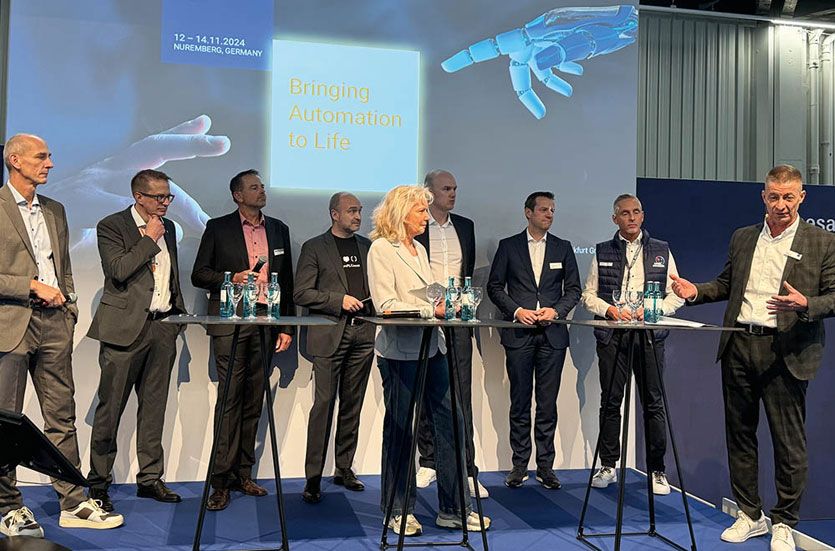
Dr. Claus Bischoff (Lenze), Dr. Thomas Bürger (Weidmüller), Hilmar Panzer (Codesys), Dr. Tobias Frank (Phoenix Contact), Felix Kranert (Schneider Electric), Dr. Heiner Lang (formerly Wago) and Steffen Winkler (Bosch Rexroth) (from left) answered questions from the openautomation editorial team (Inge Hübner and Ronald Heinze) and the interested specialist audience at a panel discussion at SPS in Nuremberg. (Source: VDE Verlag)
We live Open Automation - Panel discussion part 1
Terms such as openness and co-creation have long since ceased to be buzzwords and are now a reality. And they guarantee success in the automation market. This is demonstrated by companies such as Bosch Rexroth, Codesys, Lenze, Phoenix Contact, Schneider Electric, Wago and Weidmüller. During a panel discussion, company representatives provided insights into their open automation strategy. They also explained the importance of open standards, security and much more.
The term Open Automation can be found on many exhibition walls. This was also the case at SPS in Nuremberg in November 2024. However, if you took a closer look, you could see that the individual players have a very different understanding of its interpretation, implementation or future design. At the panel discussion during the SPS, the experts provided a variety of insights. It started in the now.
"If we are honest, automation has often been associated with a high lock-in effect. This means that customers rarely opt for one component, but mostly for one provider. And if they want to change, it becomes difficult," says Steffen Winkler, Head of Sales Business Unit Automation & Electrification Solutions at Bosch Rexroth, describing the current situation. He cites the fact that open systems eliminate this lock-in effect as an advantage. "Users have more options for putting together their own system or adding components - even those that we may not even know about today."
Read more: You can read the full article from the 01/2025 issue of open automation magazine here
This article is only available in German.
A recording of the panel discussion can be found here.